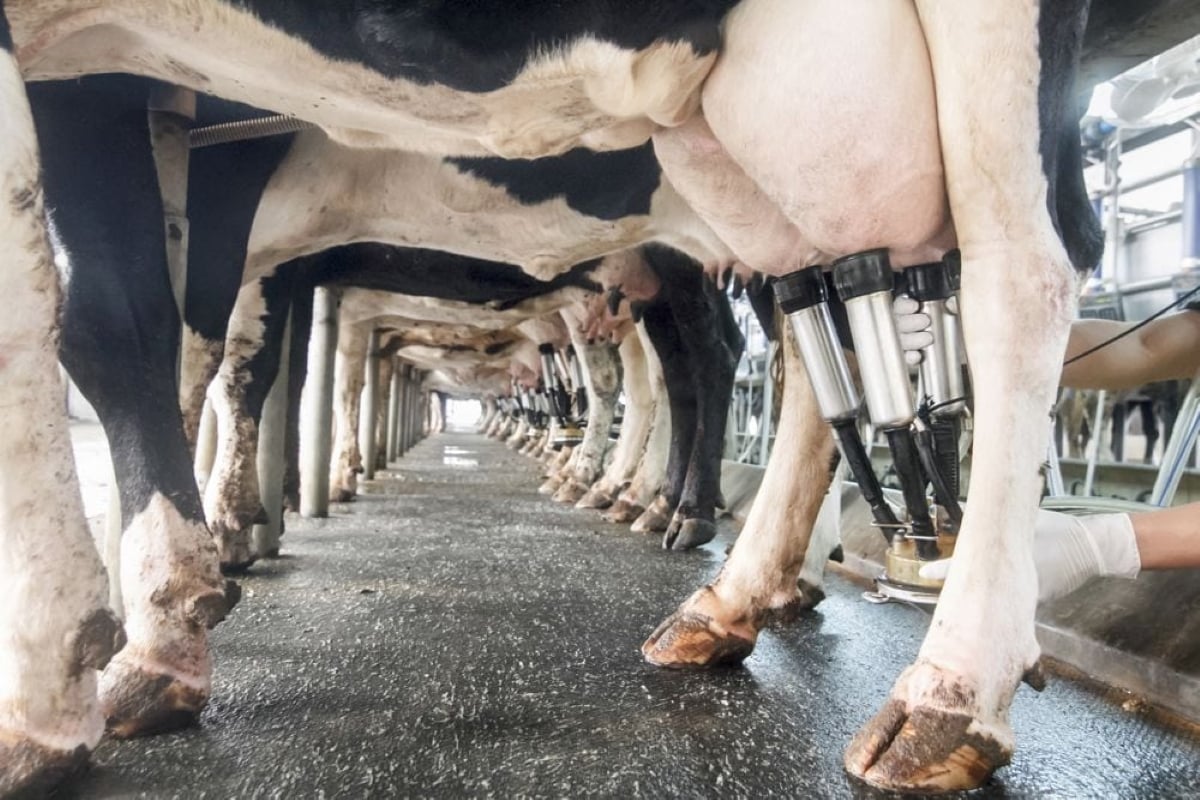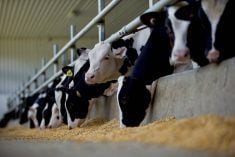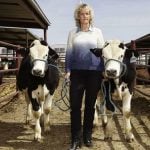Regulatory reform, investment and raising the agriculture sector’s profile are among the top priorities for Canadian producer groups ahead of this year’s federal budget, set to be tabled Tuesday.
The 2025 budget will be the Carney government’s first.
Change in approach expected
Read Also

Farm gate milk price to rise in 2026
The Canadian Dairy Commission will raise its farm gate milk price by 2.3255 per cent in February, the Crown corporation announced on Friday.
“I think the business community would be shocked if there wasn’t a dramatic departure and approach,” said CropLife Canada CEO Pierre Petelle said.
“Everything we’ve heard for the past year signaled a pretty significant departure from the previous government.”
The Trudeau government’s 2024 budget drew mixed reactions from the agriculture community with some groups praising its action on tax and climate challenges and others saying it fell short of farmers’ concerns. The 2024 fall economic statement made few mentions of agriculture.
Tyler McCann, managing director of the Canadian Agri-Food Policy Institute (CAPI), said he also sees a difference in the how the current government approaches agriculture.
“I think if you hear what (Agriculture and Agri-Food Minister Heath) McDonald says, it is very clearly a growth-oriented approach,” McCann said. “He is very much concerned about the economics of the sector. He’s very much concerned about trade and economic viability. He talks about innovation. He talks about regulatory reform.”
McCann said he sees two main expectations for the budget within the sector: supports for those impacted by Canada’s various ongoing trade disputes and a set of cuts and sacrifices.
“If you look across what (Agriculture and Agri-Food Canada) spends its money on, it’s pretty easy. There’s only so many buckets that can get cut from.”
McCann said he expected cuts to environmental programming and staffing.
He added the cost-cutting may not be as aggressive as initially expected, and next year will likely see a budget with more drastic cuts. This is largely due to the trade uncertainties Canada is still facing.
Non-financial asks
Improved regulatory approval timelines for government bodies like the Canadian Food Inspection Agency (CFIA) and Pest Management Regulatory Agency (PMRA) were among CropLife’s priorities according to an Oct. 30 statement.
“We saw the Liberal platform mentioning the mandates of CFIA and PMRA … should be broadened to include economic considerations,” Petelle said. “We’re asking for that to actually happen.”
“The good thing about our asks (is) they’re not financial asks,” he added. “With the austerity coming and the focus on our deficit, we feel that this is the perfect time to take some of these requests seriously.”

McCann said he saw this as a possibility.
“There’s a lot of opportunity for the government to do non-cost measures, or to take money that they’re already spending and spend it differently in ways,” he said.
“I think that there’s broad agreement, even within government, that their first round of work on regulatory reform was very underwhelming and left a lot of work on the table, and certainly the budget would be a good place to do it.”
What agriculture needs in the budget, McCann said, is a sign the government will follow through in its mandates and act on regulatory reform.
In the Oct. 30 release, CropLife also called for the government to “put food security and affordability at the forefront,” and “Institute cutting-edge regulatory practices,” by “reviews and best regulatory practices from trusted, risk-based jurisdiction.”
Agriculture as a national priority
In June, over 25 agricultural organizations, including the Canadian Federation of Agriculture, Grain Growers of Canada, the Canadian Cattle Association and the Canadian Meat Council, sent a letter to Carney welcoming the government’s focus on strengthening the economy while also requesting strategic investment in the sector. It called for agriculture to be made a national priority.
Petelle said it was significant for so many commodity groups, from supply managed sectors to grain growers, to align on a message.
“These groups don’t always align on policy positions, but what they do align on is a call to action,” he said. “So, I think that that speaks volumes.”
Trade also continued to be a priority. The Canadian Federation of Agriculture called on the government to support trade efforts like the Canada-United States-Mexico Agreement (CUSMA), to protect farm inputs like fertilizer from countermeasures in response to U.S. tariffs, and to ensure agriculture’s place in the new Trade Diversification Corridor Fund.
The federation also asked the government to support pathways to permanent residency for temporary foreign workers, to modernize the Canadian Grain Act and to mandate “Agricultural Impact Assessments (AIAs) for all federal infrastructure projects, including defence-related projects, and federal land claim decisions that may affect the quality or availability of agricultural land in Canada.”
The Canadian Meat Council asked the government to reduce regulatory burdens by modernizing Canada’s enhanced feed ban, by extending Labour Market Impact Assessment (LMIA) applicability to 2 years and to invest in African Swine Fever (ASF) preparedness and recovery.
The Canadian Organic Growers released an action plan Oct. 29, ahead of the budget’s release, which called on the government to adopt a plan to “unlock the sector’s full potential.” Its main action points included accelerating growth and innovation in organic production, growing markets and demand and strengthening policy, regulatory and data infrastructure.
In an Oct. 31 news release, the Conservative Party of Canada called on the government to bring back the Prairie interswitching pilot in the budget. This would include making it permanent and extending it to regions not included in the original program, which it said would provide farmers with the fair rail access they need.

















